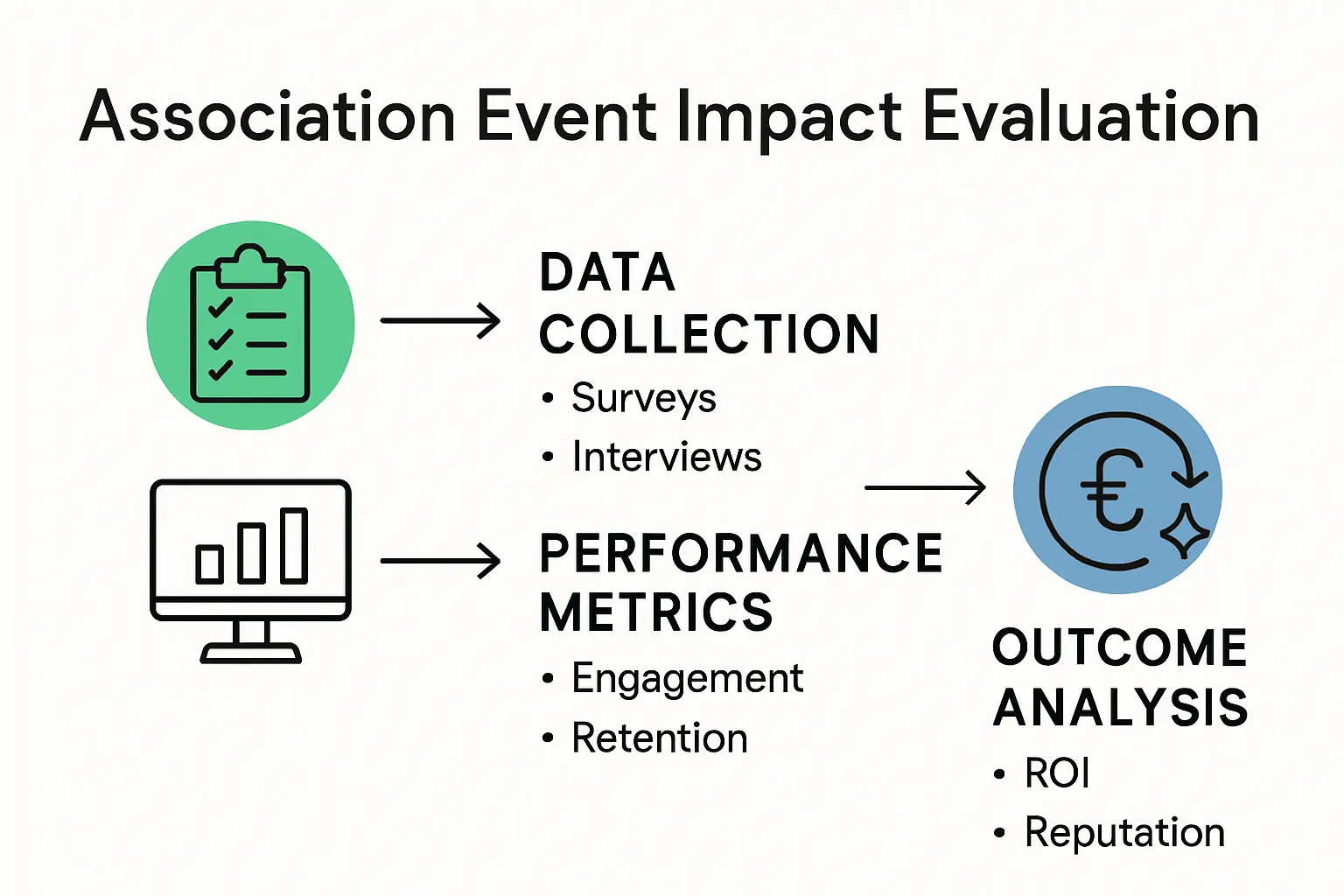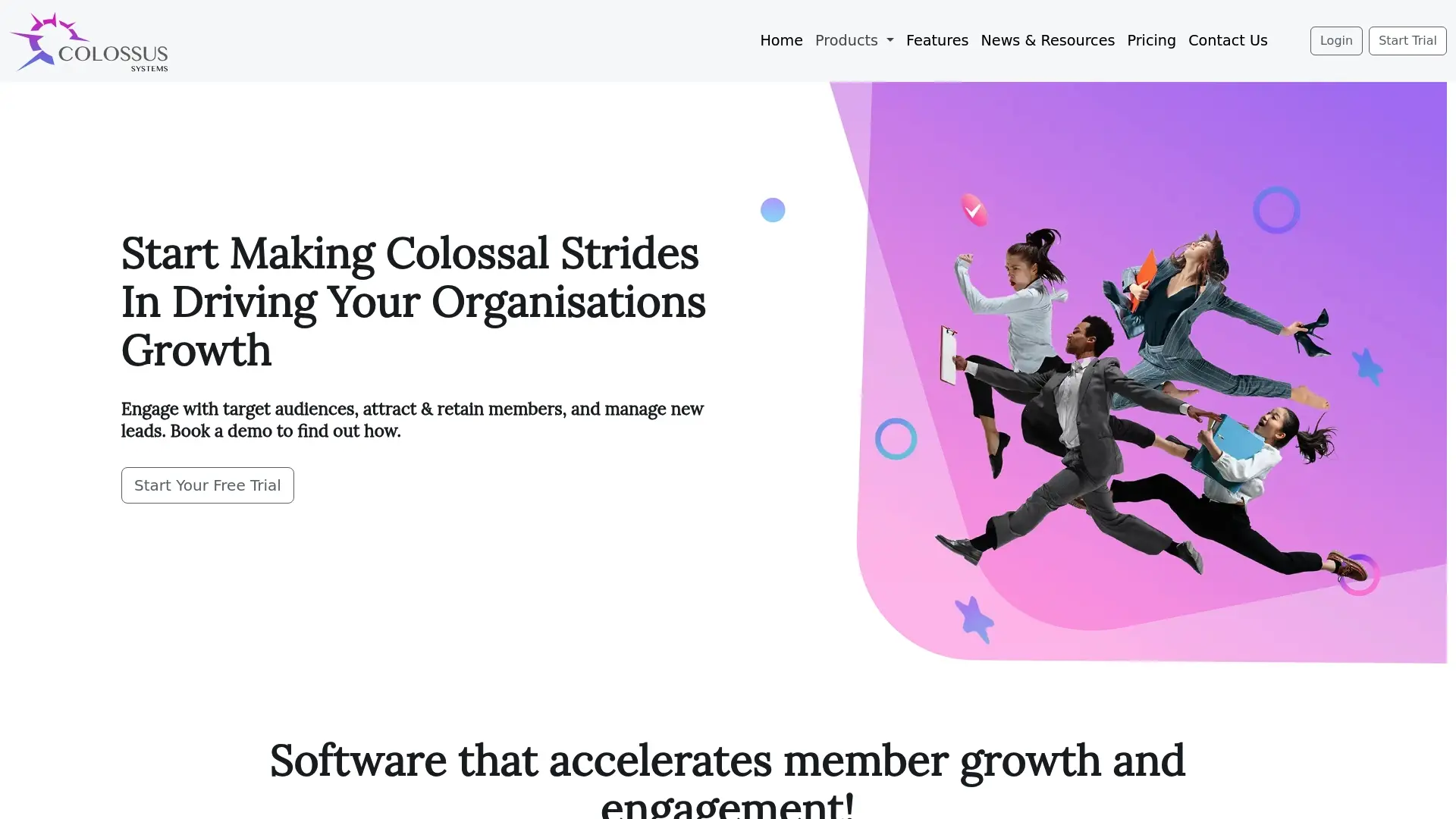Understanding Event Planning for Associations

Event planning for associations is more than booking a venue and sending invitations. Associations deliberately design events to boost member retention rates and even raise new member recruitment by up to 20 percent. Most people assume these gatherings are standard networking sessions, but the real surprise is how they deliver strategic value that shapes an entire organisation’s future.
Table of Contents
- Defining Event Planning For Associations
- The Importance Of Effective Event Planning
- Key Components Of Successful Association Events
- Understanding The Role Of Stakeholders In Event Planning
- Evaluating The Impact Of Events For Associations
Quick Summary
| Takeaway | Explanation |
|---|---|
| Association events drive member engagement | These events purposefully align with organizational missions to foster valuable professional interactions among members. |
| Strategic planning enhances event value | Incorporating clear objectives and tailored content can significantly improve the overall effectiveness of each gathering. |
| Stakeholder involvement is crucial | Engaging diverse stakeholders ensures that all interests align with the organisational goals, enhancing the event’s success. |
| Continuous evaluation informs future strategies | Implementing comprehensive measurement frameworks allows for nuanced insights, improving future event planning and effectiveness. |
| Events impact organisational growth | Well-planned events transcend networking, driving membership retention, organisational credibility, and community development. |
Defining Event Planning for Associations
Event planning for associations represents a strategic approach to creating meaningful gatherings that drive organizational objectives, foster member engagement, and support broader institutional goals. Unlike standard corporate events, association events are uniquely designed to cultivate professional connections, share knowledge, and advance collective interests.
Core Purpose of Association Events
Association events serve multiple critical functions beyond simple networking. These gatherings are purposefully crafted to align with organizational missions, create platforms for professional development, and generate opportunities for meaningful member interactions. Explore our comprehensive event marketing strategies to understand how strategic planning transforms ordinary meetings into powerful engagement tools.
Key objectives of association events typically include:
- Professional skill development
- Knowledge exchange among industry peers
- Recruitment of new members
- Fundraising and resource generation
- Policy discussions and industry trend analysis
To better understand the key aims behind organising association events, the table below outlines the main objectives and what each entails.
| Objective | Explanation |
|---|---|
| Professional skill development | Providing opportunities for members to learn and upskill |
| Knowledge exchange | Facilitating information sharing among industry peers |
| Recruitment of new members | Attracting and onboarding prospective members |
| Fundraising and resource generation | Raising funds or acquiring resources for association activities |
| Policy discussions & trend analysis | Creating a platform for debating policies and industry trends |
Strategic Event Design Principles
Successful event planning for associations requires understanding the nuanced requirements of membership organizations. According to the U.S. Bureau of Labor Statistics, effective event planners must coordinate complex logistical elements while maintaining alignment with organizational goals.
The strategic approach involves comprehensive considerations such as:
- Identifying precise member demographics
- Understanding specific learning or networking objectives
- Selecting appropriate venues and formats
- Developing engaging content and programming
- Creating mechanisms for meaningful interaction
By meticulously addressing these elements, associations can transform events from mere gatherings into powerful platforms for member growth, organizational advancement, and professional community building.
The Importance of Effective Event Planning
Effective event planning transcends mere logistical coordination, representing a critical strategic function for associations that directly impacts organizational success, member satisfaction, and long-term institutional growth. Successful events are complex ecosystems that require meticulous design, strategic thinking, and precise execution.
Strategic Impact and Organizational Value
Events serve as powerful platforms for associations to demonstrate their value, build community, and achieve multiple interconnected objectives. Learn about advanced event risk management to understand how strategic planning minimizes potential challenges and maximizes event potential.
The strategic significance of well-planned events includes:
- Building organizational credibility
- Creating opportunities for member interaction
- Generating potential revenue streams
- Establishing thought leadership
- Reinforcing organizational brand identity
Measurable Outcomes of Strategic Event Planning
According to research from special event management experts, organizations that invest in comprehensive event planning experience substantial benefits beyond immediate event outcomes. Thoughtful event design can transform gatherings from simple meetings into meaningful experiences that drive long-term organizational objectives.
Key measurable outcomes typically include:
- Enhanced member engagement metrics
- Increased membership retention rates
- Improved networking opportunities
- Higher perceived organizational value
- Stronger professional community development
By recognizing events as strategic investments rather than isolated occurrences, associations can leverage these gatherings as powerful tools for continuous organizational evolution and member value creation.
Key Components of Successful Association Events
Successful association events require a multifaceted approach that integrates strategic planning, precise execution, and comprehensive member engagement. These events are not merely gatherings but sophisticated platforms designed to deliver substantial value to professional communities.
Strategic Event Architecture
The foundation of exceptional association events lies in their architectural design, which encompasses far more than logistical arrangements. Explore innovative event marketing strategies to understand how strategic communication amplifies event impact.
Critical architectural components include:
- Clear and compelling event objectives
- Comprehensive audience segmentation
- Tailored content development
- Integrated technological infrastructure
- Robust feedback mechanisms
Core Operational Elements
According to research from Columbia University, successful event management hinges on role clarity, communication precision, and meticulous advance planning. Operational excellence transforms potential challenges into opportunities for meaningful engagement.
Key operational considerations encompass:
- Precise timeline management
- Resource allocation strategies
- Risk mitigation protocols
- Communication coordination
- Performance tracking frameworks
By integrating these sophisticated components, associations can design events that transcend traditional networking, becoming transformative experiences that generate tangible value for members and advance organizational objectives.
Understanding the Role of Stakeholders in Event Planning
Stakeholder engagement represents a sophisticated ecosystem of collaborative interactions that fundamentally determine the success of association events. These complex relationships extend far beyond simple participation, creating intricate networks of influence, expectations, and strategic alignment.
Stakeholder Identification and Classification
Effective event planning requires a nuanced understanding of diverse stakeholder groups and their respective roles. Learn advanced event marketing strategies to comprehend how stakeholder engagement can transform event outcomes.
Stakeholder categories typically include:
- Core organizational leadership
- Event planning committee members
- Potential sponsors and financial supporters
- Member representatives
- External service providers
Strategic Stakeholder Management
According to research from the Federal Highway Administration, comprehensive stakeholder involvement requires systematic approaches that align individual interests with collective event objectives. Successful stakeholder management transcends traditional communication models, creating integrated engagement frameworks.
Key strategic management principles encompass:
- Transparent communication channels
- Clear role definition
- Collaborative decision making processes
- Mutual value proposition development
- Continuous feedback mechanisms
By implementing sophisticated stakeholder engagement strategies, associations can transform events from simple gatherings into powerful platforms for collective achievement and organizational growth.
Evaluating the Impact of Events for Associations
Measuring event impact represents a sophisticated analytical process that goes beyond traditional quantitative metrics, providing associations with nuanced insights into their strategic effectiveness. This comprehensive evaluation framework transforms event data into actionable intelligence that drives organizational growth and member engagement.
Multidimensional Impact Assessment
Impact evaluation requires a holistic approach that captures both tangible and intangible outcomes. Discover advanced event marketing techniques to understand how strategic measurement can enhance future event planning.
Critical evaluation dimensions include:
- Membership engagement levels
- Knowledge transfer effectiveness
- Networking quality and depth
- Financial return on investment
- Long-term organizational reputation
The following table summarises the critical dimensions for assessing the impact of association events, helping planners focus on what truly matters.
| Impact Dimension | What It Measures |
|---|---|
| Membership engagement levels | The degree of member participation and involvement |
| Knowledge transfer effectiveness | How well the event facilitates learning and information exchange |
| Networking quality and depth | The success in building valuable professional connections |
| Financial return on investment | The revenue or value generated compared to costs |
| Organisational reputation | The long-term effect on how the association is perceived |
Comprehensive Measurement Frameworks
According to research from the International Association of Event Hosts, objective-driven evaluation demands robust methodological approaches that transcend superficial metrics. Successful impact assessment integrates quantitative data with qualitative insights, creating a nuanced understanding of event performance.

Key measurement strategies encompass:
- Pre and post-event surveys
- Detailed participant feedback analysis
- Comparative performance benchmarking
- Longitudinal impact tracking
- Comprehensive stakeholder interviews
By implementing rigorous evaluation methodologies, associations can transform events from isolated occurrences into strategic instruments of organizational development and member value creation.
Transform Your Event Planning Into Lasting Member Engagement
Struggling with complex event logistics and low member engagement, as discussed in your journey to master event planning for associations? You are not alone. Many organisations face the challenge of creating events that deliver professional value and meaningful connections without overwhelming their team. Harness the power of strategic event design, stakeholder management, and impact evaluation—all within one unified platform.

Ready to turn every event into a catalyst for organisational growth? Discover how Colossus Systems streamlines event planning, member management, and engagement analytics for associations. Gain powerful tools to tailor registrations, automate communications, and boost attendance—without the headache. Visit Colossus Systems today and see how our technology can help you deliver exceptional member experiences at your next event. Act now to strengthen your community and move your association forward.
Frequently Asked Questions
What is the core purpose of event planning for associations?
Event planning for associations aims to create meaningful gatherings that foster member engagement, facilitate knowledge exchange, and align with an organisation’s goals, thereby enhancing professional connections.
How do associations evaluate the impact of their events?
Associations evaluate event impact through a comprehensive assessment that includes both quantitative data, such as membership engagement levels and financial return on investment, and qualitative insights gathered from participant feedback surveys and stakeholder interviews.
What are some key components of successful association events?
Successful association events incorporate strategic event architecture, which includes clear objectives, audience segmentation, tailored content, integrated technology, and effective feedback mechanisms, alongside core operational elements such as timeline management and resource allocation.
Why is stakeholder engagement important in event planning for associations?
Stakeholder engagement ensures that diverse groups, such as organisational leadership and potential sponsors, are involved in the planning process, leading to better-aligned goals, enhanced communication, and increased value creation for all parties involved.
Recommended
- Event Marketing Strategies for Membership Groups and Associations|CS
- Association Membership Software | Colossus Systems
- [ Association Membership Management Software - Features and Benefits
|CS](https://colossus.systems/blogs/37/association-membership-management-software-features-benefits)